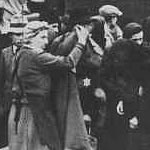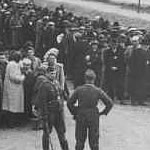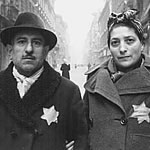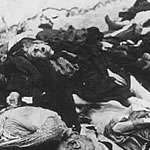References for Further Reading/Viewing
Top Recommendations
The Politics of Genocide: The Holocaust in Hungary, Randolph L. Braham
(Available in two-volume and condensed editions)
The world owes a tremendous debt of gratitude to Randolph Braham, Distinguished Professor Emeritus of Political Science at the City University of New York Graduate Center, and Director of the Rosenthal Institute for Holocaust Studies at the Graduate Center, who has spent a lifetime in scholarly research and publishing on the Holocaust in Hungary. This book is the indispensable resource for anyone interested in learning about the Holocaust in Hungary. If you are looking for more detail over all, and on specific regions of the country, the two-volume edition will be the place to start. If you are looking for more of a general overview, though still with a great deal of information, you might begin with the condensed edition.
Strictly from Hungary, Ladislas Farago
If you are not Hungarian and want to understand something of the Hungarian spirit and the way Hungarians view the world, and themselves, you will delight in this clever, ironic, funny book. If you are Hungarian, you will relish Farago’s feistiness, sense of humor, and experience. And if you just enjoy good books, you will love this one.
Fateless, Imre Kertész
Kertész won the Noble Prize for Literature in large part for this remarkable autobiographical novel. Writing through the eyes and experiences of a young teenager, with crisp prose and exceptional openness and immediacy, Kertész takes the reader to the fires of Auschwitz and Buchenwald, and back to indifference in post-war Budapest
Sunshine, István Szabó
This film by Academy Award-winning director István Szabó (no relation to the author) chronicles three generations of a Hungarian Jewish family from the start of the 20th century to around the time of the 1956 Hungarian Revolution. Ralph Fiennes stars in all three leading male roles. The film provides a vivid and personal overview of the upper middle class Hungarian Jewish experience in the period, which began with economic and social success and accompanying assimilation and intense patriotism (conversion to Catholicism and Magyarized last names were leading actions many Jews took), to persecution and deportation during World War II, to discrimination and alienation after the war.
History of the Holocaust in Hungary
For relatively brief, well-written articles offering authoritative broader historical context and concise recounting of the events of the Holocaust in Hungary, I recommend these resources from the United States Holocaust Memorial Museum:
Holocaust in Hungary: Frequently Asked Questions
Anti-Semitism and Holocaust in Hungary: World War I to March 1944
Holocaust in Hungary: German Occupation, Deportation, and Defeat (1944-1945)
These photographs help illustrate in a small way the great horror of the Holocaust in Hungary:
A transport of Jews from Hungary arrives at Auschwitz-Birkenau. Poland, May 1944. (Photo courtesy United States Holocaust Memorial Museum. Click image to see full size.)
A transport of Hungarian Jews lines up for selection at Auschwitz. Poland, May 1944. (Photo courtesy United States Holocaust Memorial Museum. Click image to see full size.)
Hungarian Jews with yellow stars, at the time of the liberation of the Budapest ghetto. Hungary, January 1945. (Photo courtesy United States Holocaust Memorial Museum. Click image to see full size.)
Victims of German SS and Hungarian Arrow Cross terror in the ghetto, found in the courtyard of the Pestor synagogue on Dohany Street. Budapest, Hungary, January 1945.
— Magyar Nemzeti Muzeum Torteneti Fenykeptar
(Photo courtesy United States Holocaust Memorial Museum. Click image to see full size.)
On Wikipedia:
Rise of Communism in Hungary after World War II
Effects on the Children of Holocaust Survivors
In her highly valuable book Children of the Holocaust, Helen Epstein chronicles the challenges many children of Holocaust survivors have experienced in connecting with their family’s Holocaust past. While some survivors of the Holocaust spoke openly of their lives in those times, many others walled off the memories and never discussed them. And yet, this silence, along with their moods and allusions had substantial effects on their children, brought into bright relief as, over time, and often in adulthood, came to learn of their family’s experience.
Renewed Anti-Semitism in Hungary Today
See these resources on the recent resurgence of Anti-Semitism in Hungary:
Congressional Testimony of Paul A. Shapiro, Director, Center for Advanced Holocaust Studies, United States Holocaust Memorial Museum (pdf)
Randolph Braham’s opening remarks given at the International Conference on the Holocaust in Hungary: 70 Years Later 2014, United States Holocaust Memorial Museum (pdf)




